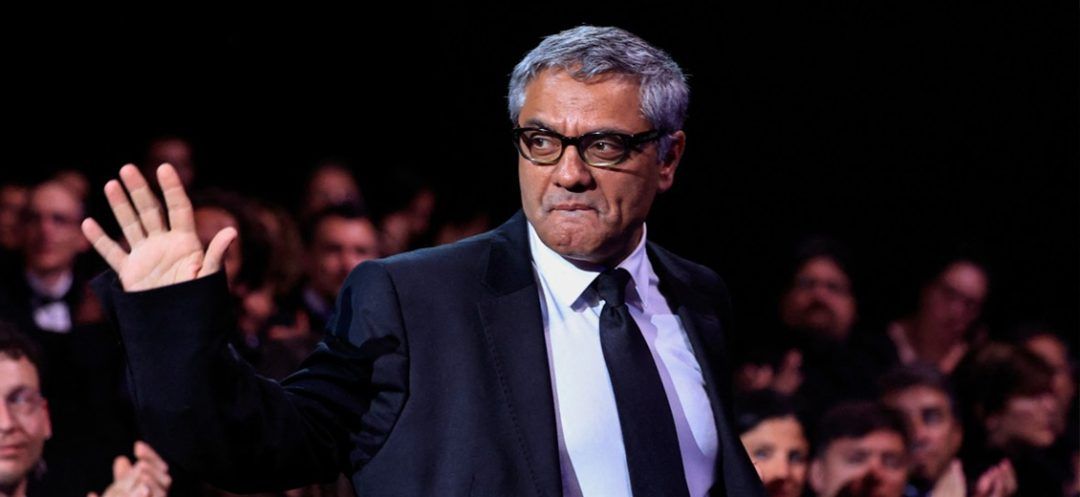
After decades of challenging censorship in Iran, filmmaker Mohammad Rasoulof was forced into exile to present his latest film condemning the regime, The Seeds of the Wild Fig Tree.
Mohammad Rasoulof, 51, is a name well-known among film enthusiasts. This Iranian director has built his career by relentlessly defying censorship in his country, even at the risk of imprisonment. His latest film, The Seeds of the Wild Fig Tree, which was presented at Cannes and received a special jury prize, will be released in French theaters this Wednesday. Its release is nothing short of a miracle, given the many obstacles faced during filming.
For Mohammad Rasoulof, Iranian prisons have been a true school of cinema. “It takes twenty years of training to learn. Otherwise, anyone could make a good underground film!” he told AFP during the Cannes Film Festival. His time behind bars taught him to develop his “outlaw side” and to outsmart security services, whether it was hiding scripts or concealing the identity of actors.
This knowledge also enabled him to organize his own escape from Iran. After being convicted of “collusion against national security,” Mohammad Rasoulof was forced into exile, something he had always resisted to continue his fight at home. He turned off his electronic devices and left Iran on foot, crossing the mountains to reach Europe and Germany, where his daughter Baran lives.
Upon his arrival at Cannes, the filmmaker made his intentions clear: “I hope that the entire apparatus of oppression and dictatorship will eventually disappear in Iran.” A powerful message, much like his highly political body of work. From corruption in A Man of Integrity (2017) to the death penalty in There Is No Evil (2020), and the repression of protests in The Seeds of the Wild Fig Tree, Mohammad Rasoulof has continuously exposed the flaws of the Iranian regime.
His latest film includes footage from the Woman, Life, Freedom movement that shook Iran in late 2022. This new generation, which the director admires, has “developed a consciousness thanks to access to media and information, and will bring about enormous changes,” he hopes.
Born in 1972 in Shiraz, one of the most open cities in Iran, Mohammad Rasoulof studied sociology and then editing in Tehran. He has long been a target of the authorities. His first prison sentence dates back to a documentary project with another filmmaker, Jafar Panahi, about the massive protests that followed the disputed re-election of President Mahmoud Ahmadinejad in 2009.
Despite a 20-year ban on filmmaking imposed by the Iranian justice system, Mohammad Rasoulof has continued to secretly create works that are regularly selected for major festivals such as Cannes and Berlin. Deprived of a passport, he was unable to attend the Berlinale in 2020 to present There Is No Evil, which won the Golden Bear.
During the filming of The Seeds of the Wild Fig Tree, the threat resurfaced. In early May, his lawyer revealed that Mohammad Rasoulof had been sentenced to eight years in prison, five of which were enforceable, as well as lashes, a fine, and the confiscation of part of his property. This sentence was linked to his arrest in July 2022 for denouncing the “corruption” and “incompetence” of the authorities and encouraging protests.
Released from prison for health reasons in January 2023, Mohammad Rasoulof had a “privileged observation post” of the “Woman, Life, Freedom” movement. And when a prison official confided to him his struggles to justify his actions to his own children and his suicidal impulses, the filmmaker knew he had the idea for his next film.
Now in exile, Mohammad Rasoulof remains determined to continue fighting with his camera. The Seeds of the Wild Fig Tree, released at the risk of his freedom, is a clear proof of this. A powerful film, a cry of anger against oppression, crafted by a filmmaker who has yet to say his final word. As he stated in Cannes: “I hope this film will contribute to the Iranian people’s struggle for their liberation.”
Read more



Comments